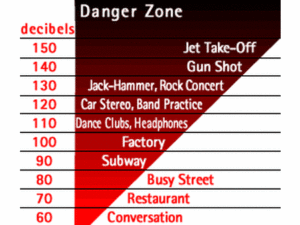
Tinnitus sufferers with children or near kids often wonder if a child’s screams and shrieks can worsen their tinnitus and even cause hearing loss.
Many people would agree that young kids are their loudest during play, rather than during a tantrum.
A squirt of water on a six-year-old girl’s backside could result in a shriek louder than a house alarm.
So can being pulled down a street in a little red wagon. Being hosed with water by a playmate and swinging from a low-hanging tree branch can bring out the most piercing shrill screams and shrieks.
Sometimes unbelievably loud and high pitched shrieks are heard in grocery stores – perhaps triggered by excitement over spotting some cupcakes or during interaction with a sibling.
Even someone with a little hearing loss can still perceive the high volume of a child’s robust hollering.
Keep in mind that a person without hearing loss is not more immune to cumulative damage to their hearing than is someone who already has measurable hearing loss.
Your ears are not automatically protected from loud noise just because a recent audiology test had normal results. tinnitus worse
So whether you have tinnitus and/or hearing loss, or perfectly normal ears, you need to be vigilant about limiting your exposure to loud noise – including the high pitched shrieks and screams of young children.
Tinnitus and Screaming Kids
“In general, loud sounds can exacerbate one’s tinnitus, especially when they are dangerously loud,” says Rivka Strom, AuD, CCC-A, Director of Audiology, Advanced Hearing NY Inc.
“There are guideline set by the National Institute of Occupational Safety and Health that provide the maximum amount of time we can be exposed to certain levels of sound before our ears can no longer tolerate the sound,” explains Strom.
“At that limit, the individual is putting himself at risk for hearing loss and tinnitus. If one already has tinnitus, a high level of sound such as that of loud music or even the screaming of children can exacerbate the tinnitus, but the risk increases if the screaming is prolonged.
“Breaks in the screaming (i.e., intermittent screaming) is typically more tolerated by our ears, as the time factor is significant in terms of tolerance from our delicate hair cells in the inner ear.
“Further, there is a condition called hyperacusis which is characterized by an increased sensitivity to sound, even for sounds that may be at moderate levels.
“Approximately half of those suffering from tinnitus also suffer from this condition, making the screams and shrieks of children unbearable for them, whether intermittent or prolonged.”
Many parents find their own children’s screams a big ear sore, simply because a scream is an ugly sound.
Imagine having to listen for 30 minutes straight to a recording of young kids screaming – but at a low volume.
Or, imagine listening to a soft recording of adult women screaming and shrieking. The sound from either group is grating no matter what the volume.
But it is the volume of sound, along with length of exposure – be it from kids, babies, adults, music, machinery, souped-up engines or sirens – that determines its potential harm to hearing and effect upon tinnitus.


Dr. Strom is a member of the American Speech Language and Hearing Association and has received several awards including Brooklyn College’s Excellence In Audiology Award.
 Lorra Garrick has been covering medical, fitness and cybersecurity topics for many years, having written thousands of articles for print magazines and websites, including as a ghostwriter. She’s also a former ACE-certified personal trainer.
Lorra Garrick has been covering medical, fitness and cybersecurity topics for many years, having written thousands of articles for print magazines and websites, including as a ghostwriter. She’s also a former ACE-certified personal trainer.


























